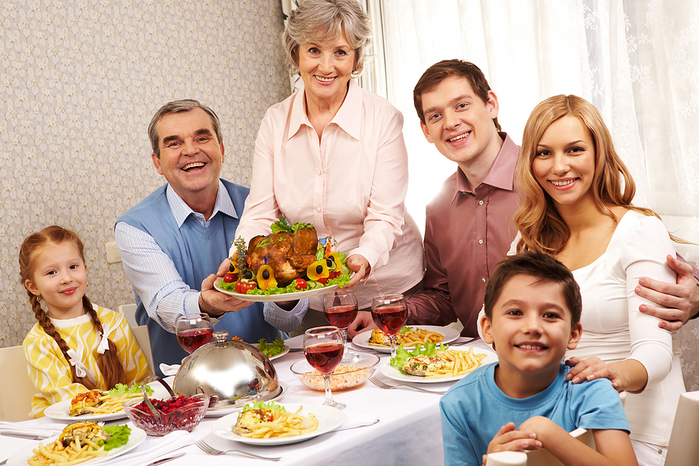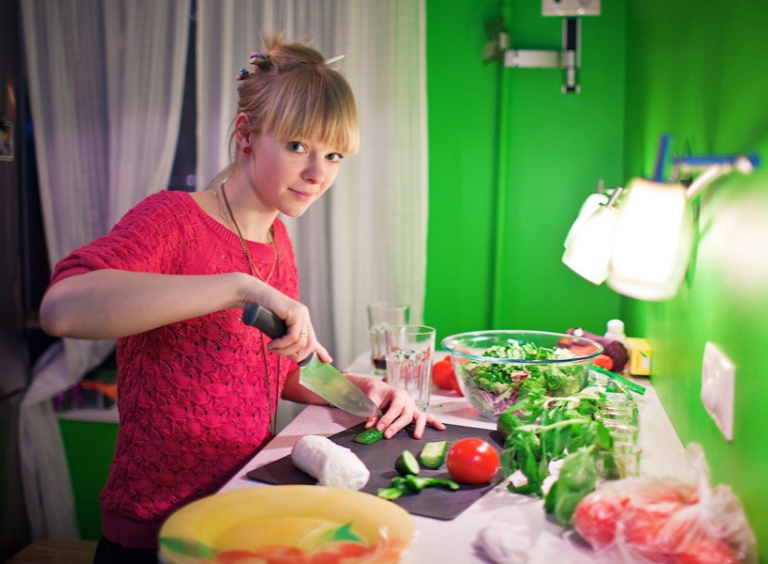GENERAL FOOD HABITS IN RUSSIA
Food in Russia has great value and evokes respect:
- Historically Russia was an agrarian country, and that fact is reflected in its culture; ‘life’ and ‘belly’ are cognate words;
- Even nowadays most people in Russia have experience of eating products they grow themselves (in their dachas/ country houses); after economical collapse of the late 80-90s it was an effective way to satisfy household need in food products; afterwards that practice turned mostly into a hobby, although for older generation dacha remains an economically important source of self-produced food;
- These seems to be the main reason why it’s not socially acceptable to throw out food remains, usually they are used after additional processing (e.g. if boiled potato remains after dinner, next day it should be fried with onion, etc.), as well as one is expected to finish his portion (this shows his respect to the cooker and food itself).
Food culture in Russia is based on centuries of national traditions, corrected by the Soviet period. However during the last 25 years the situation substantially changed under the influence of other cultures and requirements of modern life
| Traditions | New |
| Family traditions and restricted “living space” during the Soviet period:
| Destruction of family traditions and women’s employment:
|
| Lack of food and seasonable products:
| Economic growth >> higher assortment of products, appliances and HoReCa:
|
Traditional attitude to food in Russia is changing. Nowadays we can observe 3 major trends in food:
- Quick and convenient: convenience foods (ready to eat, frozen, etc.), as well as outdoors eating and food delivery play greater role in everyday life, especially in big cities due to higher incomes and high temp of life. Most women are working full day and they have no time to cook home-made dishes (and especially various pastry) as it takes a lot of time.
- Healthy: coming after European tendencies more and more people are concerned with their health, and refuse using fat, high-calorie food and cooking (prefer stew and boil vs. fry); avoid products containing cholesterol, food additives, preservatives; aim to eat natural products, containing vitamins and mineral additives.
- It is a trend. Yet, in real life taste is still more important than naturalness.
- Various and interesting: popularity of other nations’ cuisines and traditions grows in Russia. Firstly Russians adopt those cuisines that use similar ingredients – Balkans, Italian, French and German cuisines. Japanese, Chinese and other Asian cuisines are very popular in Russia as well.
Traditionally, food in Russia satisfies not only basic need to feel “full”, nutrition, but also complies with various emotional needs.
- On one hand, food helps to relax, to indulge oneself, to overcome stress
- On the other hand, it plays the role of mediator in communication.
Food and communication:
- Food can be a cause to meet somebody (family, friends, colleagues). It is good occasion to spent time in a good company.
- At the same time, communication adds extra value to consumed food: food seems to be tastier and food consumption becomes more relaxed and pleasurable

